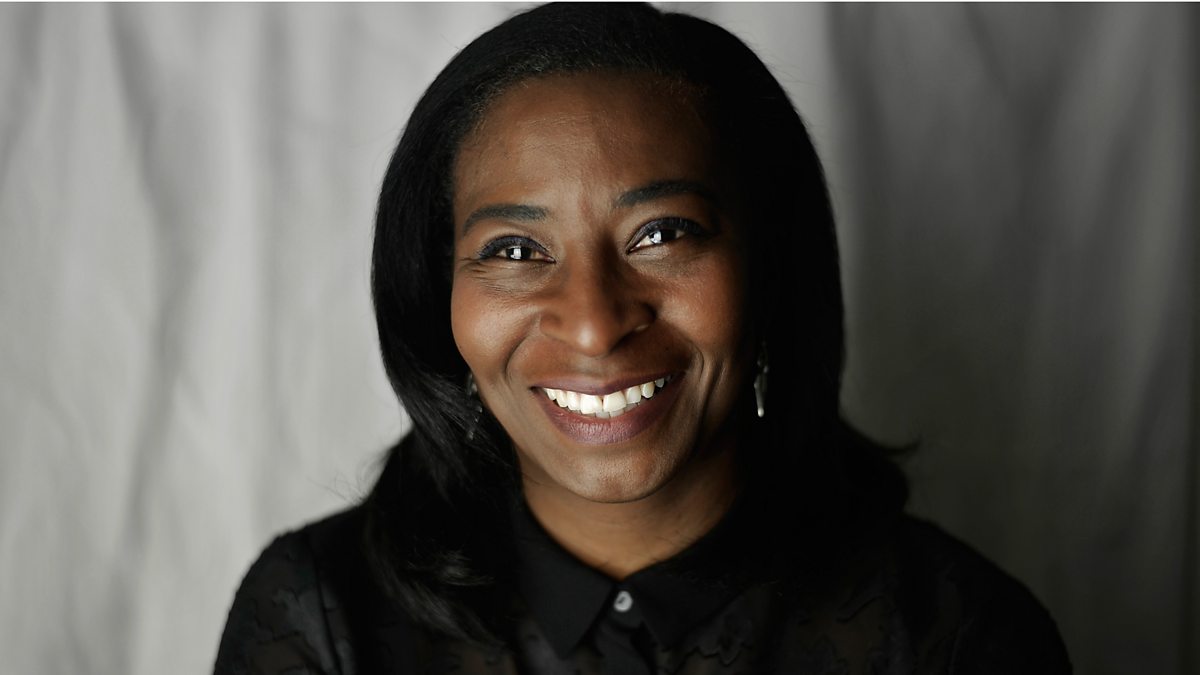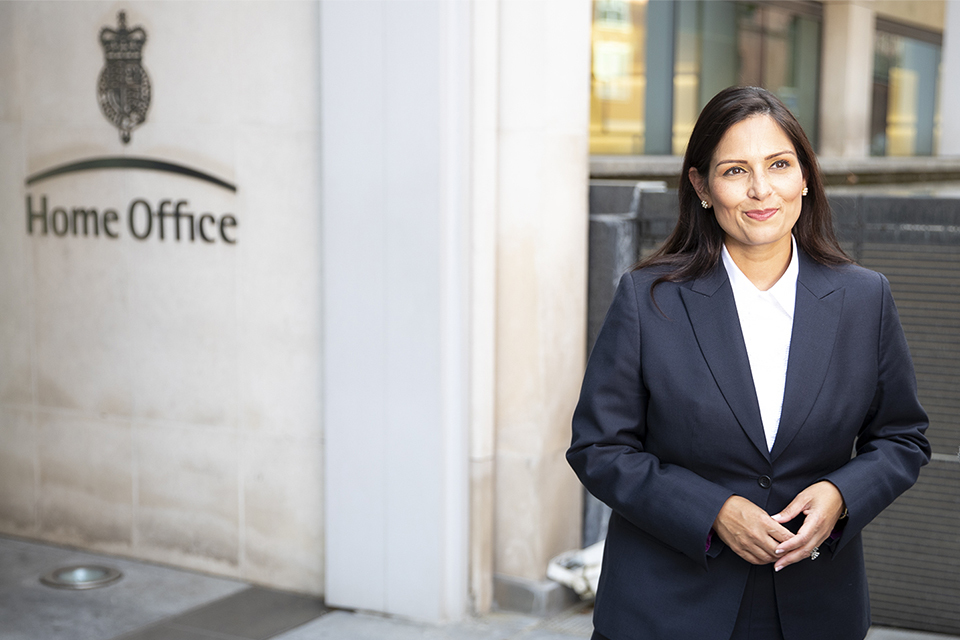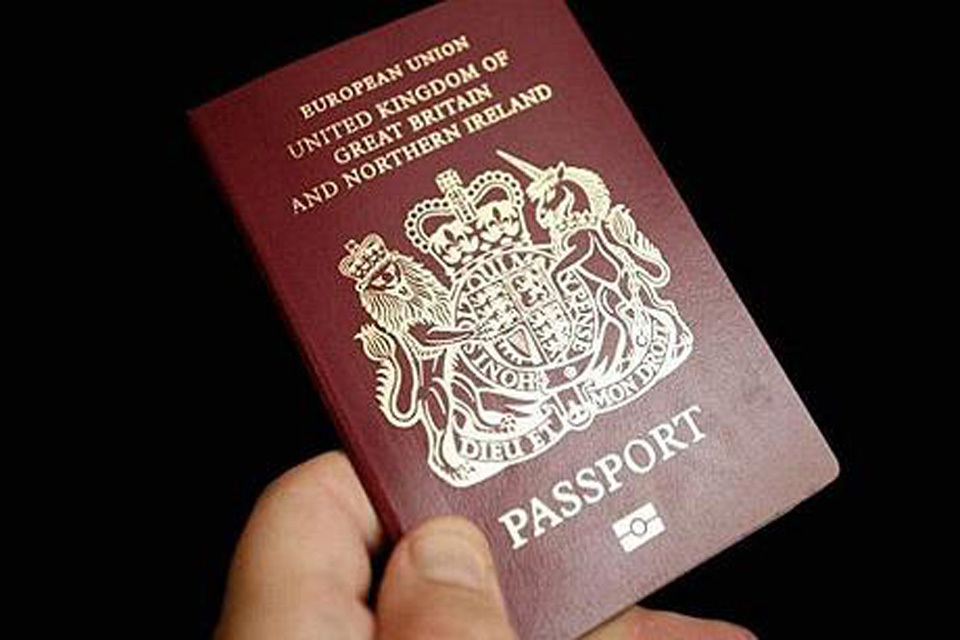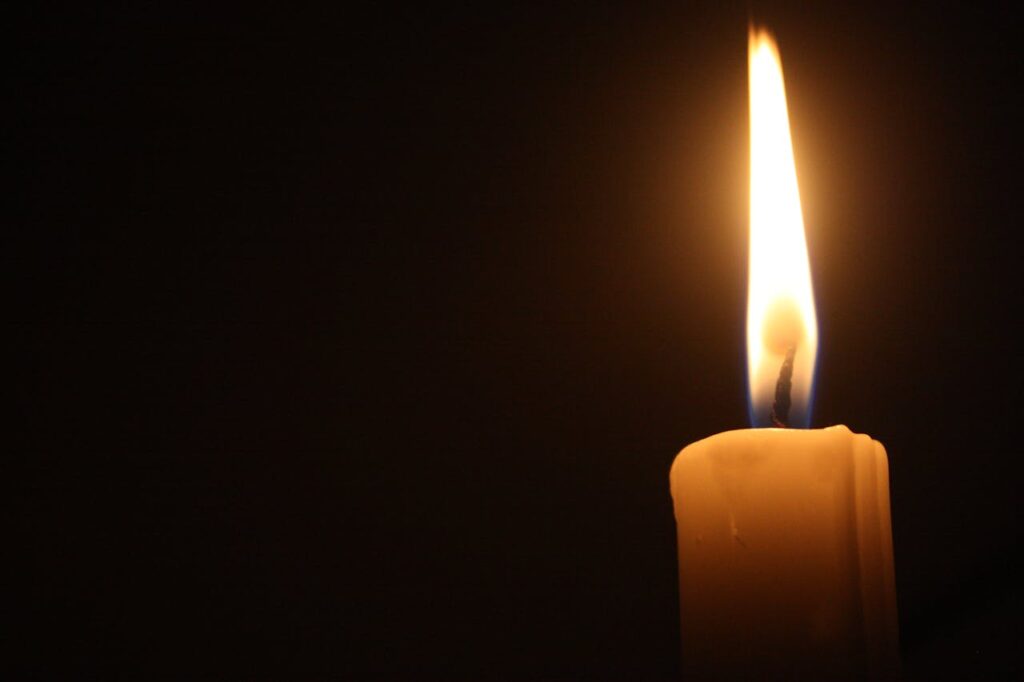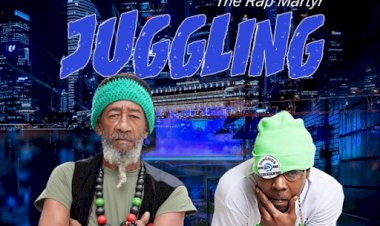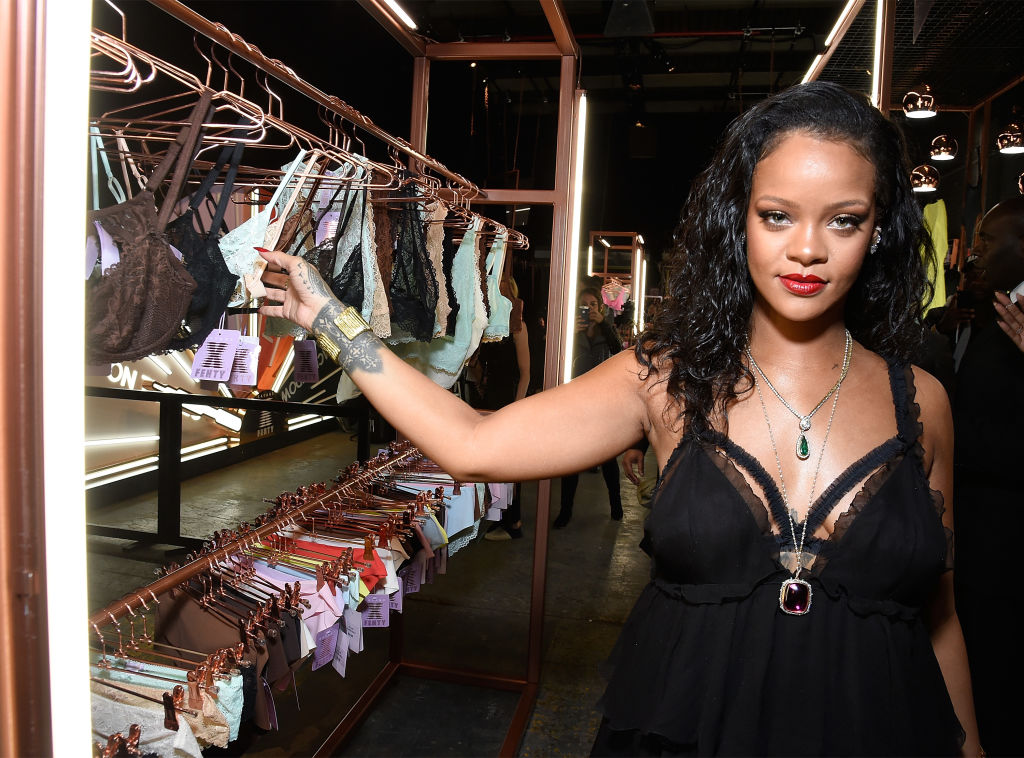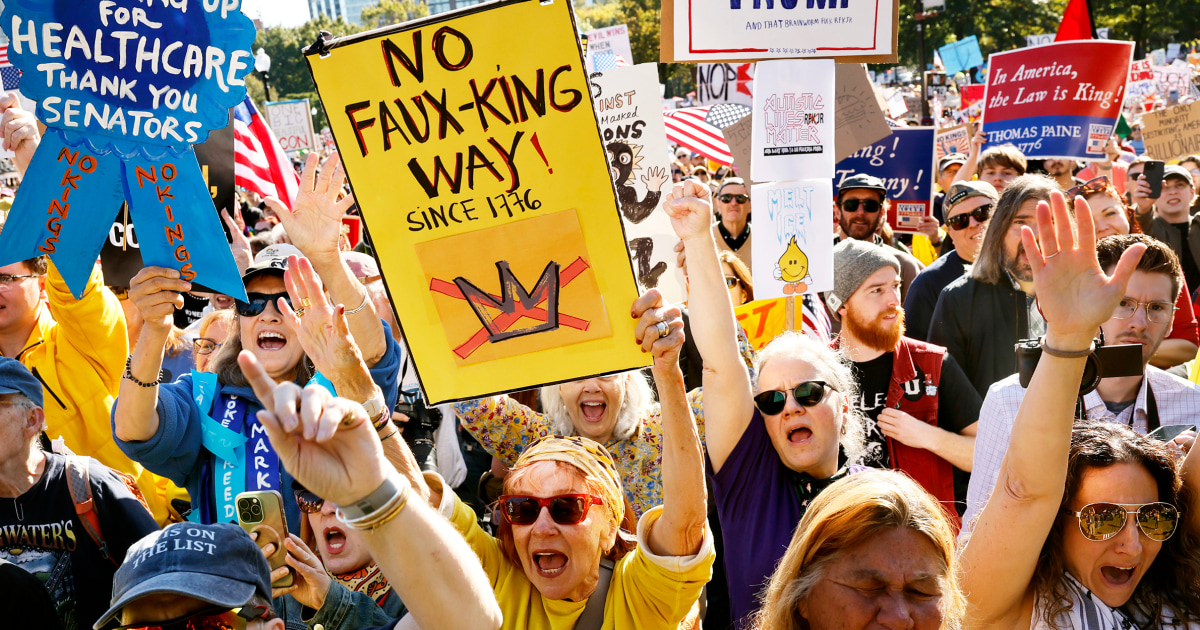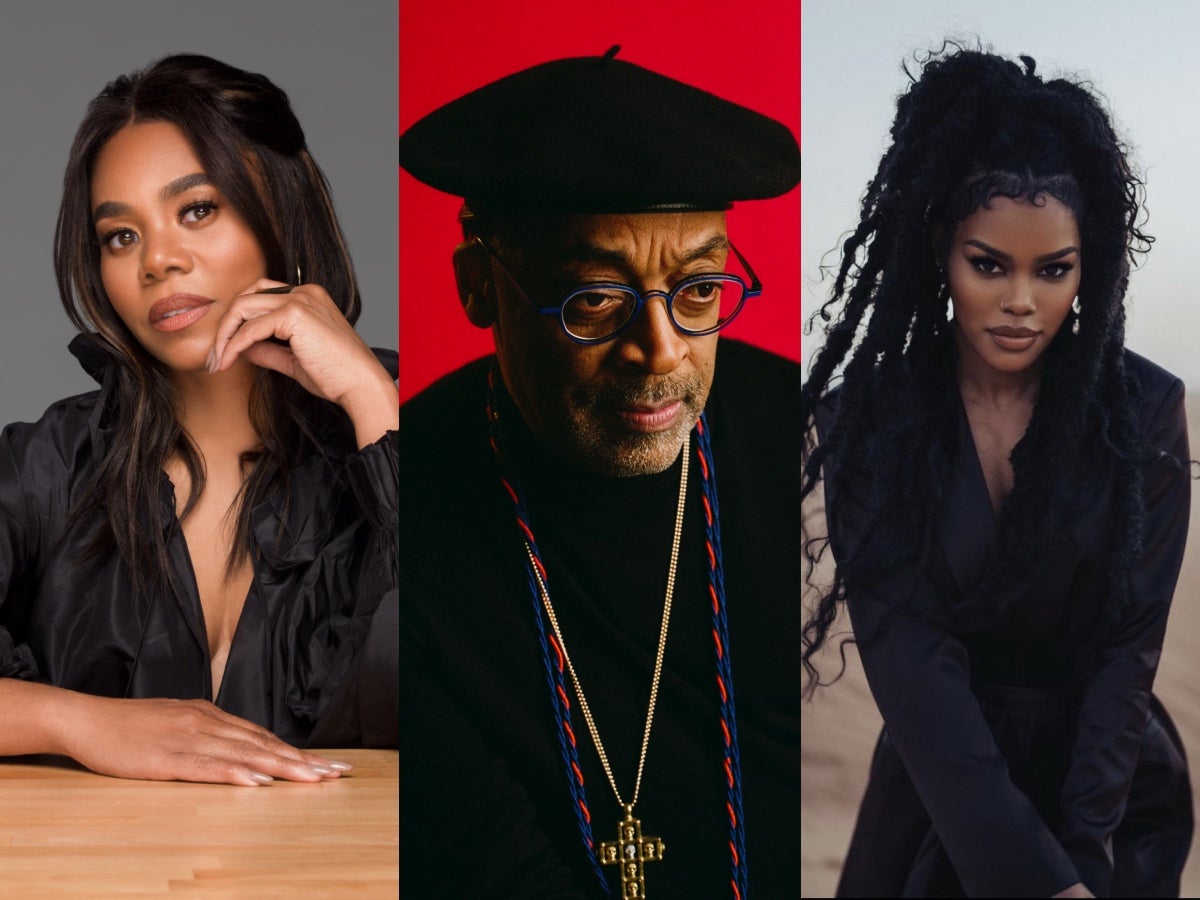Susan Wokoma Talks … Dark Skin Bruises Differently
Susan Wokoma is a British-Nigerian actress, writer and director. She is best known for her roles in Cheaters (2022-date), the Enola Holmes franchise (2020-date), The Ghost And The House Of Truth (2019), Crazyhead (2016-2017) and Chewing Gum (2025-2017).Wokoma makes her directorial debut in Dark Skin Bruises Differently, a deeply personal short film that interrogates the […]

Susan Wokoma is a British-Nigerian actress, writer and director.
She is best known for her roles in Cheaters (2022-date), the Enola Holmes franchise (2020-date), The Ghost And The House Of Truth (2019), Crazyhead (2016-2017) and Chewing Gum (2025-2017).
Wokoma makes her directorial debut in Dark Skin Bruises Differently, a deeply personal short film that interrogates the way society perceives Black children. With a runtime of eleven minutes, it focuses on a teacher, Miss Lawson (Wokoma), who advocates for a troubled, peculiar Black student named Maria during a staff meeting.
In an exclusive conversation with The British Blacklist, Wokoma reflects on childhood experiences, creative processes, and platforming Black stories.
Please introduce yourself …
Hi, I’m Susan Wokoma. Capricorn Sun, Libra Rising, Gemini Moon. North Peckham Estate-born prodigy, by way of Rivers State, Nigeria.
Describe your life in one word or a sentence.
‘I’m too sensitive for this shit.’ Shout out to all the ‘big feeling’ people reading this. This is really not the best time to feel pretty much everything.
Why are we here?
To talk about my directorial debut Dark Skin Bruises Differently.
Tell us what this project is about in your own words.
Dark Skin is a film about a teacher, Ms Lawson, who is trying her best to speak up for a seemingly troubled student of hers called Maria. However, an incident arises that causes Ms Lawson to choose between doing the right thing or the selfish thing.
Where’d this story come from?
It came primarily from my experiences with social services as a child, which I’ve never spoken about outside of my close circle before. This story has been percolating for many years. I was also deeply affected by the brutal abuse and murder of Victoria Climbié which happened when I was around 12. It’s haunted me ever since. There were so many opportunities to save her and yet she still fell through the cracks. Which children are afforded safeguarding and care and innocence? That’s at the heart of what I wanted to explore.
How did your writing process differ from your last project?
I’m quite a fast writer when I’m ignited, and I wrote this script in about two days. This short is totally self-funded, which is a stupid idea in this financial climate, but I knew if I was going to back myself and literally put my money where my mouth is, it would be with this story. And I do think there is no greater time to back yourself than when everyone has finally abandoned Black Square Summer.
You chose to both direct and star in this film. How did wearing both hats inform your approach to Sarah Lawson’s character?
It was fascinating because I had to work out how to be a director and producer who is across absolutely everything – that’s the opposite to how I work as an actor. I’ve worked with actors who will check every take, but as an actor I never watch playback, ever. Unless it’s a stunt or a sex scene, I leave myself alone and trust my instincts, my director, and the film editor. My job as a performer is to give enough great choices in the editing suite for them to choose from; outside of that, it’s none of my business. I think that approach keeps me from being vain and making choices that don’t serve the story. So yeah, that was a challenge but a deeply exciting one, and I think we pulled it off successfully.
The title is both literally referenced in the dialogue and metaphorically powerful. How did you arrive at this phrase, and what does it represent beyond its surface meaning?
It was always the title. Maëva my producer and I considered others, I thought it might be too long or too on-the-nose, but nothing else stuck. The concept came from when I was in primary school and would fall over and bash my knee. Whenever I went to a white nurse, I’d often get ‘oh well I can’t see anything, you’re fine’ – the absence of a bruise equalled the absence of trauma. It got me thinking as an adult about whose trauma story is believed and whose isn’t. Also, it wasn’t too long ago that certain medical textbooks claimed that dark skin was tougher and more resilient than white skin. That’s terrifying.
You accomplish so much in just 11 minutes. What were the biggest challenges in distilling such a complex issue into a short film format?
Not writing too much dialogue. Film is a largely visual medium and I’m a wordy gal when I get going. So, trusting in the silences and the moments of stillness was key. Pacing is everything in a short film, as you don’t have much time. Also, TV is a very edited medium and I’m from a mostly television background. It wasn’t a challenge as much as it was a joy to not be afraid of staying in a scene or staying with characters – resisting cutaways and being steadfast in my decision to stay in the action.
How did you direct Moizelle Olaleye’s performance to convey so much through expression and body language?
I was actually filming season two of Cheaters whilst we were casting for Maria, and our director Elliot Hegarty gave me some great advice before the casting session in which me and our casting director Tamsyn Manson found Moizelle. He said ‘find a kid who can just do it …there’s a magical alchemy that happens with child actors who can just do the part. Don’t challenge it.’ Moizelle is pure magic. My main job was to make sure she felt safe, looked after and free. The rest was all her doing.
The film tackles the systemic neglect of Black children in UK schools. What research did you conduct to ensure authentic portrayal of these institutional failures?
I was a black child who went to school in the UK. Four different primary schools in fact. I also used to work as a teaching assistant for a while after I left drama school. I experienced some big failures, particularly in primary school, and I witnessed it with my peers. But outside of my own personal experience, the script was crafted from imagination.
The other teachers’ dismissive attitudes feel painfully realistic. How did you work with your cast to portray this institutional bias without creating caricatures?
We cast tremendous curious actors who were not interested in playing two-dimensional characters, which just makes things so much easier. There was a lot of discussion with each actor regarding their parts and it was handy having the writer on set all the time to help with any questions (the writer being me, hahahahaha).
Would you consider expanding this story, and if so, what aspects would you explore further?
I have a whole feature film outline I wrote about 2 years ago. In that version, the character of Ms Lawson was white. It was only when I sat down and wrote the short at the end of 2023 I made her black. I thought it was so much more interesting to see a black woman who knows what it’s like to be that black child, to see this teacher fight for that child, and to see the moments she lets her down – then it becomes a kind of self-betrayal, doesn’t it? Much more interesting. But we’ll see which version gets funding … *winks*
How does this film fit into your broader body of work and your goals as a filmmaker?
It’s definitely more dramatic than some of my other work – there’s not many laughs in Dark Skin. But I definitely think I’m figuring out my childhood in some ways with my work. The first short film I wrote was a comedy called Love The Sinner and it was about a young girl watching her Nigerian mother grieve Princess Diana. I am currently developing this into a feature. I feel like I’m documenting an experience that often gets ignored in film.
However, when it comes to genre, I kinda do whatever I like. That’s how I’ve operated as an actor – I’ll do that drama, I’ll do that silly comedy, I’ll go off and do Taskmaster, I’ll go do a Tom Stoppard play, I’ll go direct my own short film. I do what I like.
GETTING TO KNOW YOU
If not an actor, then you’d be? Well I wanted to be a novelist at primary school, so maybe that.
What’s made you sad, mad, & glad this week? The fact the Freedom Flotilla was intercepted by the IDF made me sad, everything about society makes me mad, and the fact that boycotting as a means of political action is gaining traction is making me glad. Do not buy the new iPhone. You don’t need it. #FreeCongo #FreePalestine
What are you watching? I watched Married At First Sight for the very first time. Everyone is mad.
What are you reading? A Thousand Threads, Neneh Cherry’s memoir.
The last film you watched? I rewatched Bend It Like Beckham on Netflix recently – it’s a perfect film. Parminder Nagra is a quiet revelation.
The last play you saw? Punch by James Graham. Absolutely broke my heart.
The last live music event you attended? I went to New York shortly after my mum’s funeral to try and process things and I went to my favourite jazz supper club Smoke in the upper west side. I’ve been going there since my first play out there in 2013. I took my friend Somalia Seaton on a date there this time and we saw the Jon Faddis Quartet play. Stunning.
What’s currently on your playlist? ‘Where Is My Husband’ by Raye. I’ve never wanted a husband but this song makes me wish I wanted one so I could sing it with my chest.
What podcast are you listening to? Good Hang by Amy Poehler. The recent episode with Regina Hall is elite.
What’s on your bucket list? I’ve never seen an elephant. I think they’re such beautiful, deep animals.
Where’s your happy place? Wherever my chosen family are.
Celebrate someone else … Emma Dennis-Edwards and Shereen Jasmin Phillips have just launched Applied Script Arc, a company that offers a script development programme and leadership consultancy to Global Majority creatives. It also creates space for creative engagement with marginalised communities.
Celebrate yourself. I’m still here. Those who know, know.
What’s next? I’ve just shot two exciting films this year, both of which I can’t talk about yet, but they’ll be out in 2026 and 2027. I’m also writing a musical called Clara At The Door With a Revolver alongside the wonderful Ayanna Witter Johnson, as well as lots of other stuff.
Where can we find you? @susiewoosie12 but I’m very much post n go – sorry I don’t engage much. The internet is too scary, I’m afraid.
Where can we watch you at work? All over the gaff on BBC iplayer, Netflix, Channel 4 on demand. But do keep an eye out for Dark Skin Bruises Differently at a film festival near you.
Dark Skin Bruises Differently screened at this year’s BFI London Film Festival.








